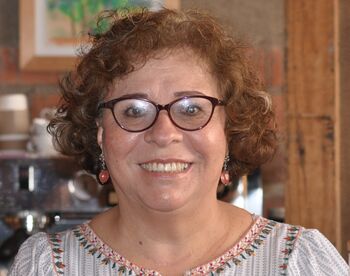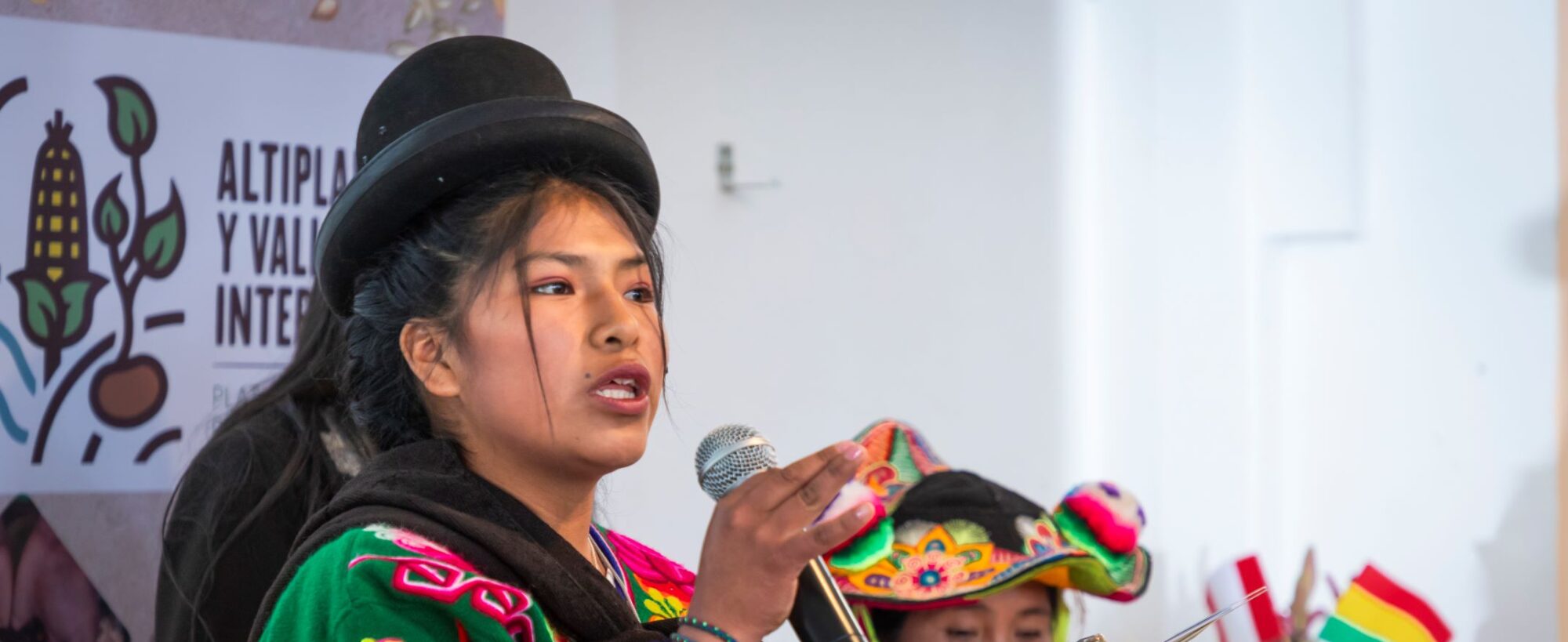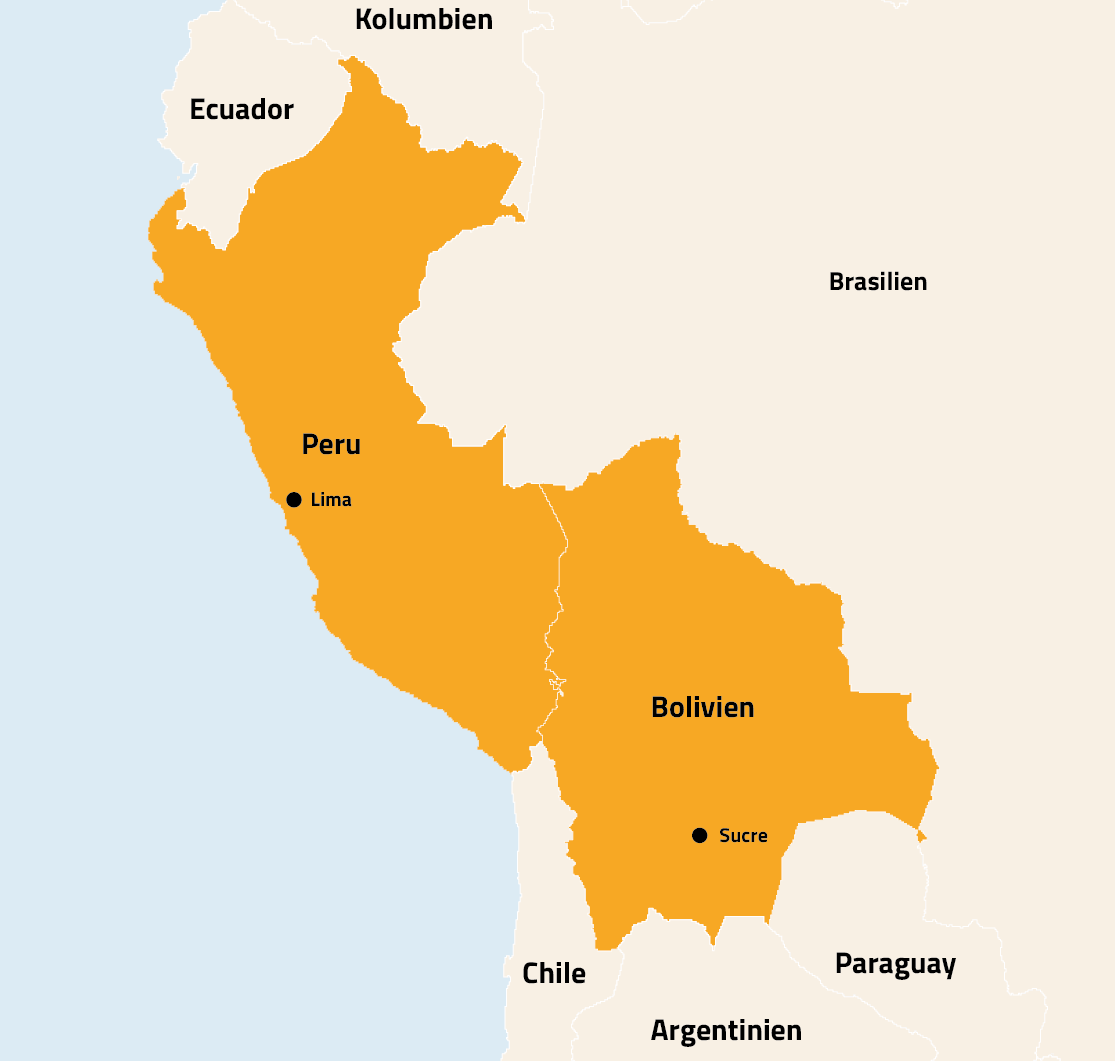
Jannet Villanueva
Coordinator Latin America (Bolivia and Peru)

Project Number: 420.1021
Lake Titicaca is much more than just a lake. The people living around Lake Titicaca call it "Mamacota", the sacred "Mother Water" - a mystical, powerful being that protects and cares for people and nature.
In fact, the survival of the population depends on this body of water and its aquifers. Thanks to its ecological diversity, Lake Titicaca provides around 2.1 million people with food, a rich fauna and, of course, water. However, Lake Titicaca is also important because of its role in the creation history of the pre-colonial civilizations (Tiahuanaco culture and Incas) and the traditions and rites that have been passed down with it. However, the effects of global warming and environmental pollution have been threatening the water quality and the life of flora and fauna for some time now.
In many places, these factors exacerbate conflicts and bring new challenges for the local people. Together with indigenous women's and youth associations, Mission 21 partner organizations have developed solutions to tackle the challenges around Lake Titicaca.
Our aim is to increase people's willingness and ability to engage in constructive dialog and cooperation. Conflicts arising from the climate crisis require both efficient and non-violent solutions. These should involve the local population and take into account and strengthen their special relationship with nature and their associated identity. In this way, helping people to help themselves can have a sustainable impact.
Threatened biodiversity, falling water levels and toxic water pollution: according to experts, the world's highest navigable lake is close to an ecological tipping point. Urgent action is required. However, the political situation on the ground is characterized by weak governance, with civil society having little influence on government decisions and no consultation between municipalities. Government investment is also not focused on solving the environmental problems of Lake Titicaca.
In the midst of many pressing challenges, our partner organizations are working together with indigenous smallholder and youth associations to address the environmental crisis through various approaches and to hold government agencies accountable.
In Bolivia our partner organizations work with three secondary school classes in the field of environmental education. In addition to imparting knowledge and skills on water issues, this also includes waste collection campaigns, raising public awareness and project work along the Katari River. The Katari is a main water artery and at the same time a main source of pollution in Lake Titicaca.
In Peru our partner organizations work with the same approach with young people from six school classes along Lake Titicaca.
Our partner organizations aim to raise awareness among both the local population and tourists. To this end, they work with indigenous women's and youth associations to implement awareness-raising campaigns that also include theatrical performances and art activities such as themed murals.
The project also organizes binational dialogue forums where civil society actors, members of local and regional government authorities and representatives of environmental ministries come together to discuss challenges, best practices and solutions. Special attention will be paid to ensuring long-term opportunities for indigenous women and young people to participate in political dialog. On the other hand, concrete measures are to be developed and implemented by the local authorities.
Our partner organizations are planning their second major waste collection campaign this year. With around 1,100 participants, the shoreline areas at various locations around Lake Titicaca and along the Katari River will be cleared of waste.
Our partner organizations take part in existing round tables, so-called "mesas", on poverty reduction, health care and agriculture. Wherever possible, they support the development of action plans and are committed to improving natural resource management and better coordination between the authorities.
Mission 21 has been supporting this work to protect Lake Titicaca as a new project since January 1, 2025. It complements the long-standing project work of our partner organizations in the area of food sovereignty and with the aim of supporting indigenous women and young people in Peru in order to strengthen their political participation and improve environmental protection.
Together with its partner organizations, Mission 21 supports indigenous women and young people from the local Aymara, Quechua and Urus communities in acquiring knowledge and skills in the field of environmental education and strategic public relations work and in carrying out environmental action days.
The work has been run as a separate project since January 1, 2025. However, binational meetings between Aymara- and Quechua-speaking women and young people from Bolivia and Peru have already taken place in the last two years. You can find more information in the 01/2025 issue of our donor magazine begegnen and in our podcast Voices of hope, in the following "The defenders of Lake Titicaca".
To the podcast Voices of hope: defenders of Lake Titicaca

To the movie: Mamacota - The holy mother water


11.3 million inhabitants (2024)
36.4% live below the poverty line (2023)
34 million inhabitants (2023)
33% live below the poverty line (2023)
CHF 72'100
Mission 21
Protestant Mission Basel
PO Box 270
Missionsstrasse 21
4009 Basel, Switzerland
Tel.: +41 (0)61 260 21 20
info@mission-21.org
Donation account Switzerland:
IBAN: CH58 0900 0000 4072 6233 2
Tax exemption number:
CHE-105.706.527
Donation account Germany:
Savings Bank Lörrach-Rheinfelden
Swift BIC: SKLODE66
BLZ: 683 500 48
IBAN: DE39 6835 0048 0001 0323 33
Account No. : 1032333